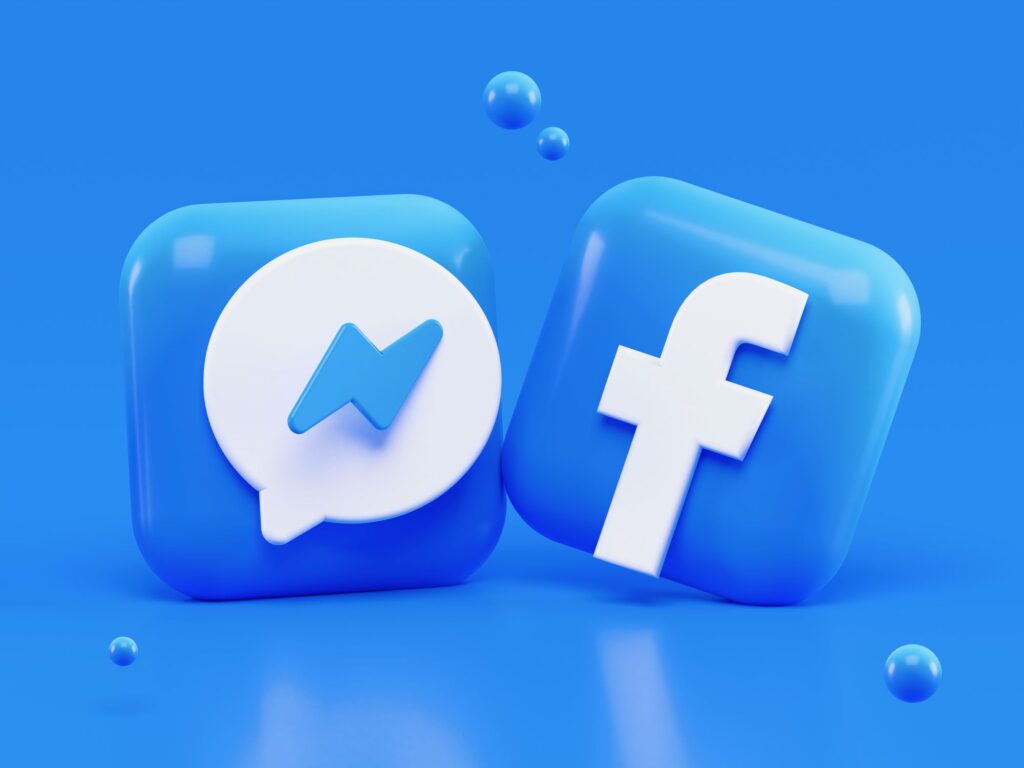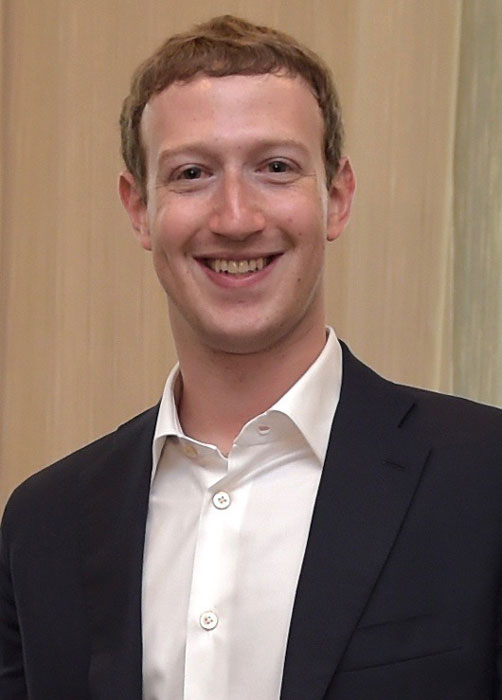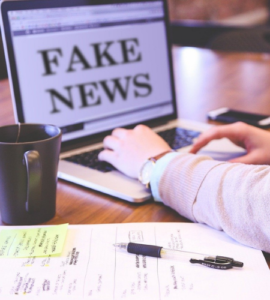
The birth date of Facebook can be identified as the year in which the famous Social Media was launched as a social networking service: we are talking about 2004 , with the launch day being February 4th .

Mark Zuckerberg – Photo By Wikipedia.
The current domain, facebook.com was, however, registered in 2005 since before this date the address was “ thefacebook.com “.
Some students from Harvard (USA), including the owner Mark Zuckerberg himself , created Facebook as a social network for their university, a sort of online directory with all the students of the Institute.
The idea was to allow the kids living on campus to identify each other and, above all, to recognize members of other dormitories and university residences.
The name itself is a reminder of the fact that Facebook wanted to be a sort of indexed collection with information on each student and related photo attached.
This concept is clearly inspired by the school yearbook (in this case in digital format) which represents a common reality in American schools and universities: it is a paper list with the name and photograph of students, distributed in some universities and high schools . schools to promote socialization.
The Origins and the First Legal Causes
Before Facebook there had been a similar attempt by Zuckerberg himself, in 2003, called ” Facemash “, a first database with student information which was however quickly closed because the young programmer had obtained the personal data illegitimately .
The Facemash issue represented only the first of a series of adventures by Zuckerberg, who on this specific occasion seriously risked expulsion from Harvard precisely for the abuse he made of student information.
With the birth of Facebook itself, the first legal case quickly arrived that brought Zuckerberg to the benches of a court .
The accusation, in this case, was of plagiarism and intellectual theft for having stolen the idea from other students (with whom he had until recently collaborated) for the creation of a social network called ” HarvardConnection “.
The case ended with a legal agreement that gave the other party the right to take possession of a substantial share of Facebook.
In the meantime, the social network was gaining more and more fame and in a short time the majority of Harvard students registered on the site.
From that moment on, the success steadily increased and access was gradually allowed to an ever-increasing number of users: first it spread among students of the other universities included in the so-called Ivy League (Columbia University, Stanford University, etc. ), then to other universities and high school students.
In 2006 , anyone over the age of 13 could use it and a year later it was already among the ten most visited sites in the world .
2008 was the epochal year in which Facebook users surpassed those of the well-known social network MySpace , its “direct rival” up to that point.
Another very important year was 2012 : Facebook in this period was in all respects a huge global giant and went so far as to buy another famous social media , namely Instagram .
Not only that, because 2014 arrived and Facebook also purchased Whatsapp , a moment that effectively marked an important turning point.
In fact, although Facebook already had its own instant messaging service (Messenger), the acquisition of Whatsapp led to an enormous increase in users , bringing to the company the entire user base of very young people (not yet able to sign up to Facebook or non-users) and their foreign contacts.
After a short time the company also decided to separate its Messenger from the Facebook app and create a totally separate one, to be downloaded separately and which interfaces with the main app; in April 2017 , there were already 1.2 billion active users of the Messenger app .
Let’s not forget that both Instagram and Whatsapp represent to all intents and purposes additional “spaces” in which to insert advertisers ‘ advertising .
We can therefore understand why there is so much interest in investing in that direction.
A month after Whatsapp, Facebook also acquired the virtual reality company Oculus VR , which was particularly interesting for its possible implementations for the experiential use of Facebook.
If in 2015 there were around 1.5 billion active users, at the beginning of 2017 Facebook had almost 1.65 billion active users around the world, of which around 1 billion were connected and participating every day (it should be noted that already on 24 August 2015 saw one billion users connected simultaneously for the first time).
Not only that, again in 2015 Facebook declared that it had 3 million advertisers in its ranks and that it had collected approximately 3.69 billion dollars in profits.
Figures that rose dramatically, given that already in the first quarter of 2017, advertisers had significantly increased and the profit had already reached 3 billion dollars .
In 2018, 2 billion active users were exceeded: needless to say, for several years now Facebook has been the social network with the highest number of active users.
Such important figures, however, necessarily also led to a notable increase in the difficulties of managing the entire mass of users. Some of these problems are still the cause of considerable critical issues, sometimes with rather difficult and controversial legal implications.
In other cases, however, the problems themselves have led to the development of important solutions for the economic implications and the benefits that companies can derive from the use of the social network: in this regard it is impossible not to mention the history and development of the Facebook Algorithm ( click to read the history of the algorithm) .
Facebook and Fake News

A hot topic concerns the issue of the now well-known and daily fake news , still unresolved and which over time has led to the introduction of numerous changes in the use of Facebook.
This is a phenomenon (not exclusive to Facebook) carried out mainly for political purposes or by click baiting sites .
In the latter case, the aim is to generate high volumes of internet traffic which translate into increases in revenue from advertising banners.
A partial solution was to introduce the possibility for users to report false news , and also to notify other users based on the achievement of an adequate number of negative feedback .
A very important critical issue concerns the use of social media with regards to the attempt to influence the users’ state of mind. In this regard, there was an important scandal in June 2014 , when it was discovered that Facebook was carrying out experiments on its users by preferentially showing them certain contents with the aim of changing their mood .
In 2015, again within the psychological sphere, ” smilies ” were introduced as different possible emotional reactions to statuses and news, which complemented the previous simple like .

The Cambridge Analytics issue
The most important Facebook scandal, however, was the one universally known as the ” Cambridge Analytics ” case which officially broke out on March 17, 2018 on the pages of the New York Times and The Guardian .
The use of a seemingly innocuous app (“ This is your digital life ”) led to the improper acquisition of the personal information of approximately 87 million Facebook users, a huge amount of data.
This information was equally misused for political purposes in favor of the electoral campaigns of Donald Trump and Ted Cruz , but also of the “ Vote Leave ” campaign in support of Brexit.
The general discontent, the enormous number of users deleted and disconnected from the social network and the legal and ethical problems led Mark Zuckerberg to publicly apologize and to close the Cambridge Analytics agency (accused of manipulating the offending data), as well as numerous similar apps at This is your digital life .
However, the issue of the security and possible use of users’ personal data is still fundamentally unresolved, and continues to be a topic of legal and political controversy.
Possible Future Impacts
Then in June 2019 came the news of the creation of Libra , a cryptocurrency that will presumably be launched by the end of 2020 in several countries.
It would be a digital currency , purchasable online through Messenger, Whatsapp and a special app (Zuckerberg’s company Calibra takes care of everything ), and can be spent to purchase goods and services on Facebook or to make donations or as an exchange currency .
However, the actual authorization by the various Central Banks to operate as a bank and therefore the legal value of the currency is still in doubt.
And, while the world wonders about the future economic impact of Libra, and the Cambridge Analytics case has not yet completely died down, the Antitrust investigation , launched in 2019, which concerns the giant’s competition practices, hovers over Facebook. of social communication.




